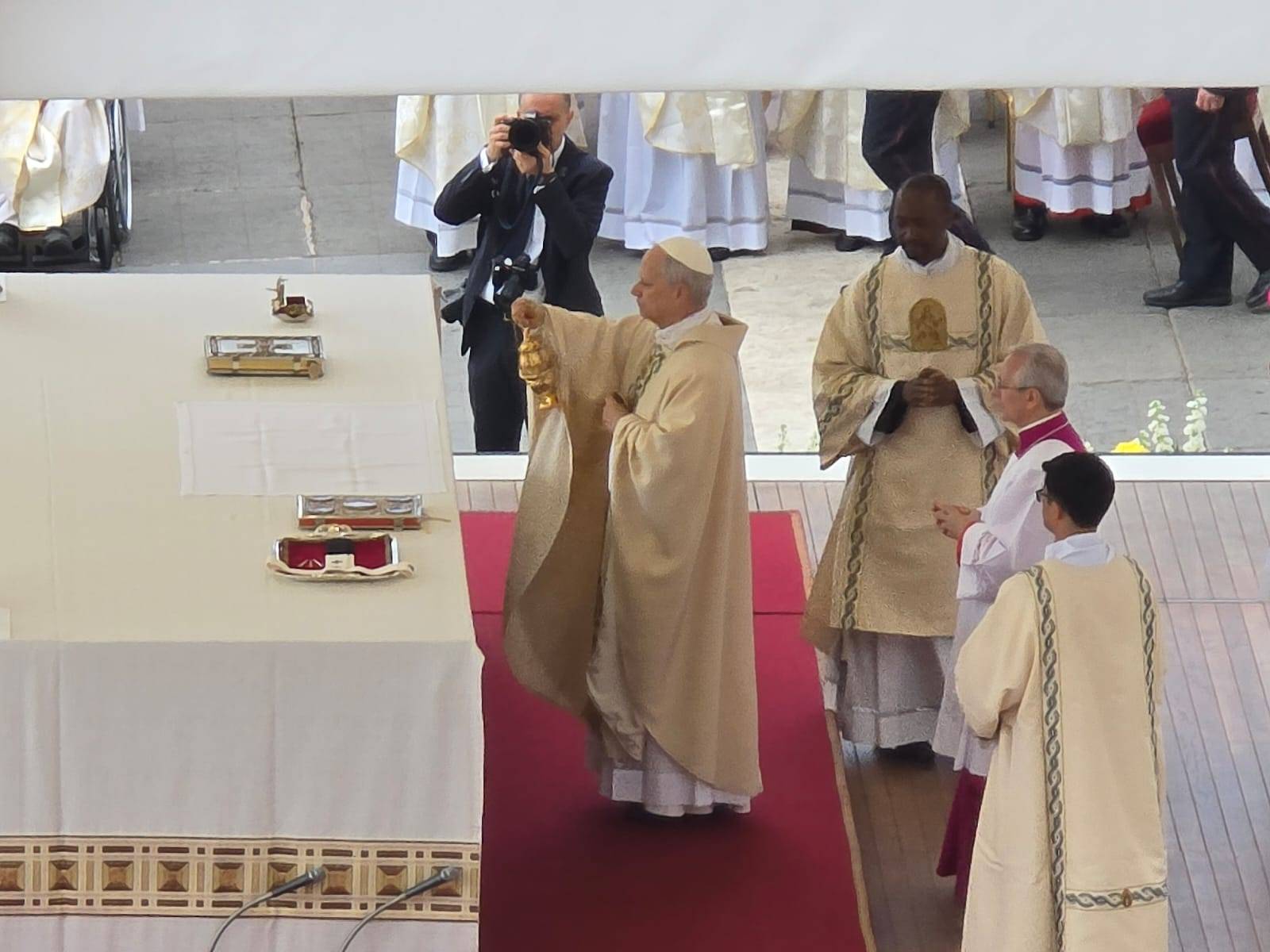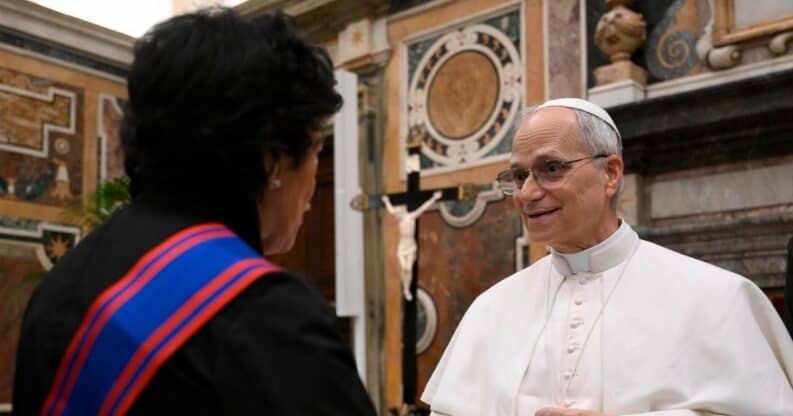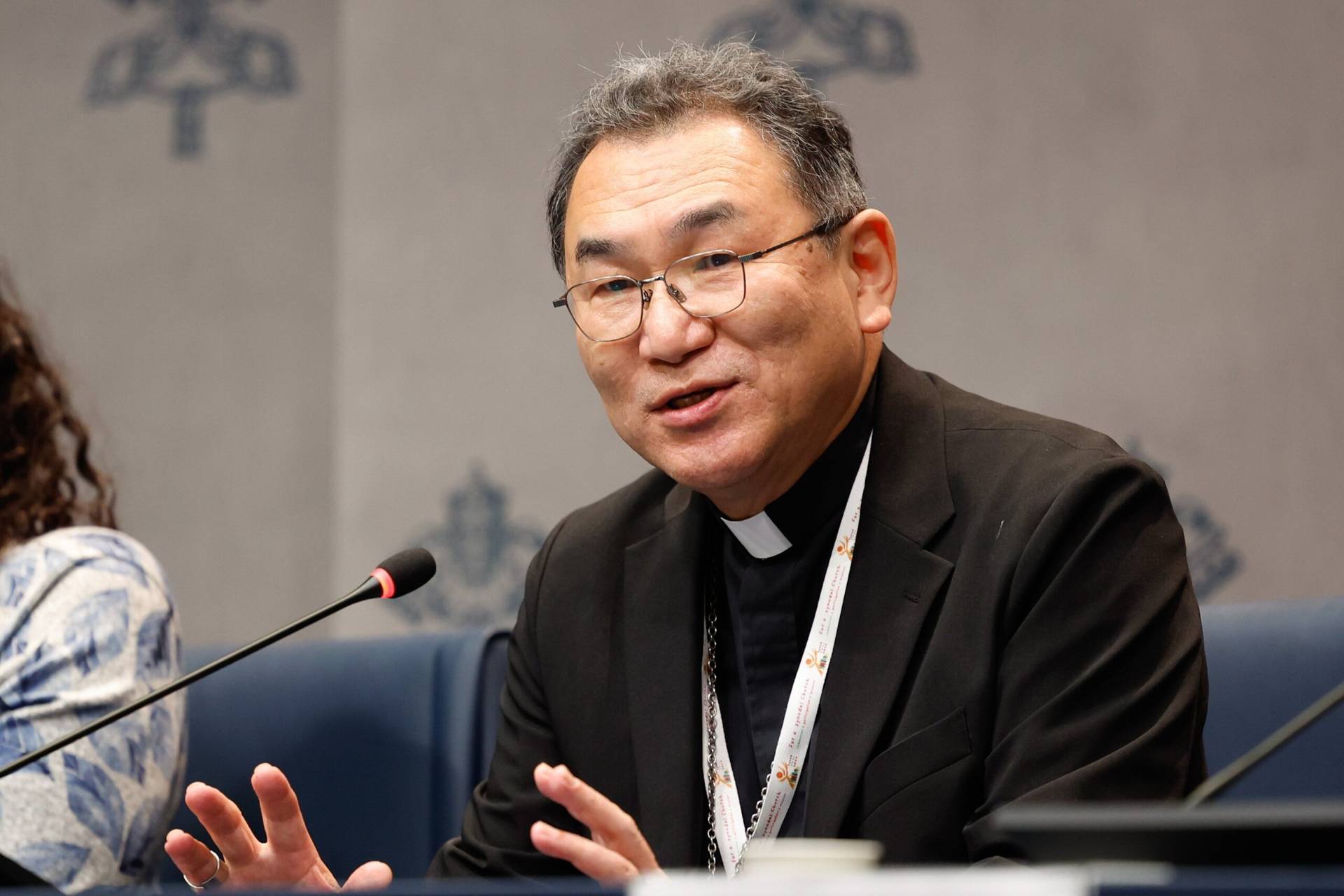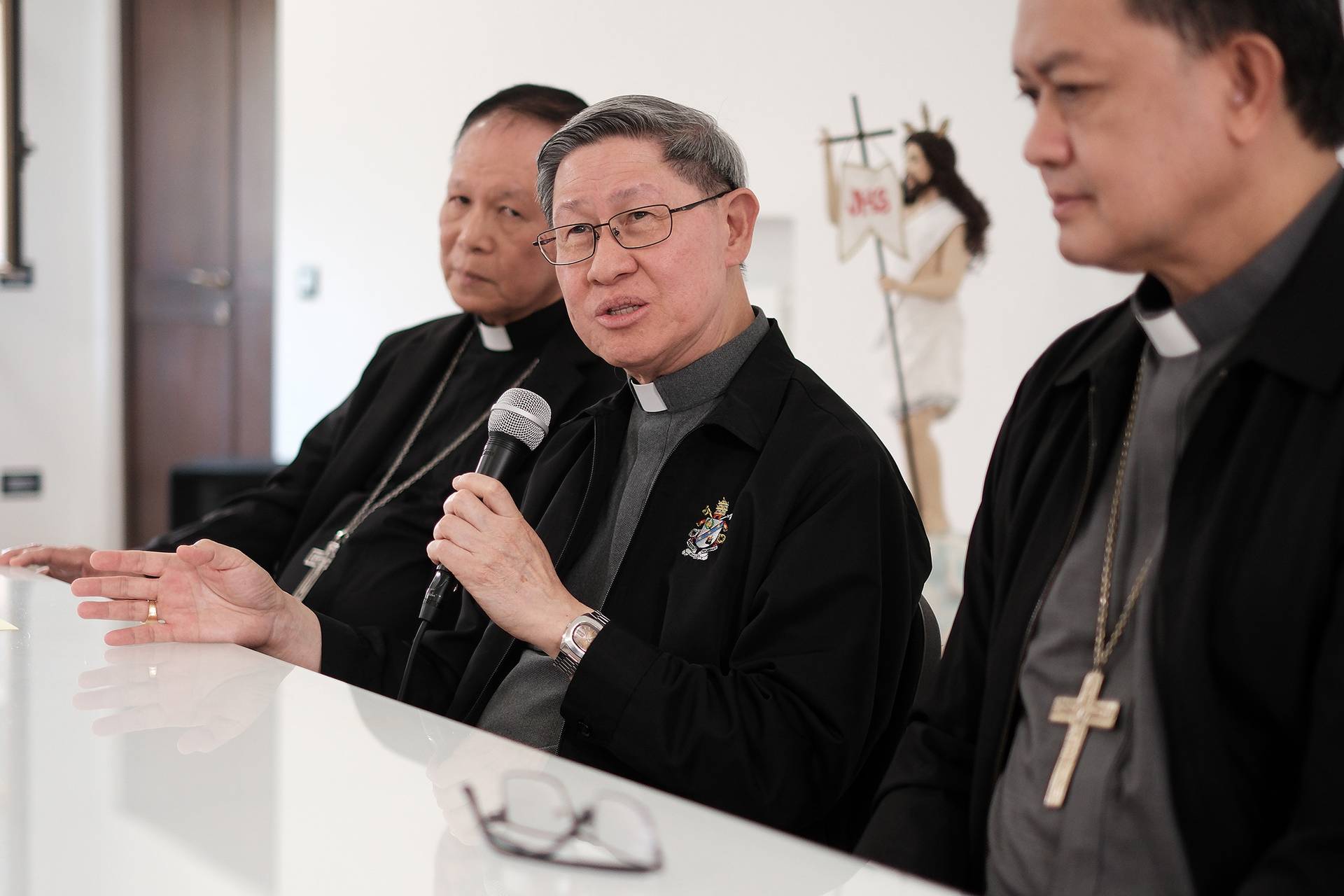Each day between now and the May 7 conclave to elect a successor to Pope Francis, John Allen is offering a profile of a different papabile, the Italian term for a man who could be pope. There’s no scientific way to identity these contenders; it’s mostly a matter of weighing reputations, positions held and influence wielded over the years. There’s also certainly no guarantee one of these candidates will emerge wearing white; as an old bit of Roman wisdom has it, “He who enters a conclave as a pope exits as a cardinal.” These are, however, the leading names drawing buzz in Rome right now, at least ensuring they will get a look. Knowing who these men are also suggests issues and qualities other cardinals see as desirable heading into the election.
ROME – It’s one measure of how young Luis Antinio “Chito” Tagle was when he burst onto the scene as a cardinal in 2012 that he was a contender for the papacy in 2013 but seen as way too young, and now 12 years later he’s again a serious possibility but in some circles his age, 67, still counts against him.
Given that the last two popes were elected at the ages of 78 and 76, one understands the reaction, but that’s not stopping a wide swath of the chattering classes from hailing the Filipino prelate as tanto papabile, meaning a highly serious candidate.
Paradoxically, however, as often as Tagle is touted for the papacy by media outlets, external commentators and ardent fans, he’ll be dismissed by an insider, insisting that he lacks the gravitas for the office and that his Vatican career has had uneven results.
No matter how you slice it, the prospect of the “Asian Francis” taking the reins of the Catholic Church is an intriguing prospect.
Born in Manila in 1957, Tagle went to seminary in Quezon City and later did his doctoral work at The Catholic University of America in Washington. He also studied in Rome before returning to the Philippines to serve as a pastor and teacher.
Tagle’s doctoral dissertation at Catholic University, written under Fr. Joseph Komonchak, was a favorable treatment of the development of episcopal collegiality at the Second Vatican Council. Moreover, Tagle served for 15 years on the editorial board of the Bologna, Italy-based “History of Vatican II” project founded by Giuseppe Alberigo, criticized by some conservatives for an overly progressive reading of the council.
From the beginning Tagle was seen as a rising star in the Asian church, explaining his appointment in 1997 to the Vatican’s main doctrinal advisory body, the International Theological Commission. (The story goes that when then-Cardinal Joseph Ratzinger introduced Tagle to Pope John Paul II as a new member, Ratzinger jokingly assured the pope that the youthful-seeming Filipino had, in fact, received his first Communion.)
Tagle was named bishop of the Diocese of Imus in 2001, where he became famous for not owning a car and taking the bus to work every day, describing it as a way to combat the isolation that sometimes comes with high office. He was also known for inviting beggars outside the cathedral to come in and eat with him. One woman was quoted describing a time she went looking for her blind, out-of-work, alcoholic husband, suspecting she might track him down in a local bar, only to find that he was lunching with the bishop.
Here’s another typical story. Not long after Tagle arrived in Imus, a small chapel located in a run-down neighborhood was waiting for a priest to say Mass at around 4 a.m. for a group mostly made up of day laborers. Eventually, a youngish cleric showed up on a cheap bicycle, wearing simple clothes and ready to start the Mass. An astonished member of the congregation realized it was the new bishop and apologized that they hadn’t prepared a better welcome. Tagle said it was no problem; he got word late the night before that the priest was sick and decided to say the Mass himself.
Much the same reputation followed Tagle to Manila, where he also became known for a broadly centered approach to matters of policy. He took strong positions against the Philippines’ Reproductive Health Bill, which included promotion of birth control. Yet his towering social concern was defense of the poor, and he also displayed a strong environmental streak.
There’s no doubt of Tagle’s charisma and ability to move crowds. He’s also a very 21st-century prelate, a sort of Cardinal-Influencer with a vast social media following– he’s got an active X account and a Facebook page, where he can be seen, among other things, swaying and gyrating to traditional Filipino dances.
Recently the right-wing LifeSite News dug up an old video of Tagle crooning the John Lennon classic “Imagine,” blasting him for singing what it termed an atheist anthem. (For the record, the clip does not actually include him singing the key line, “imagine there’s no heaven/it’s easy if you try/no hell below us/and above us only sky.”) The reaction illustrates that for every person charmed by such scenes, there’s someone else, possibly including among Tagle’s fellow cardinals, who finds them unbecoming.
In December 2019 Pope Francis named Tagle to head the Congregation for the Evangelization of Peoples, effectively the Vatican’s missionary department. Tagle and then-Cardinal Jorge Mario Bergoglio had gotten to know one another at the 2005 Synod of Bishops on the Eucharist, and clearly the pope wanted the charismatic Filipino cardinal in the mix of his administration.
At around the same time, Tagle had been elected president of Caritas Internationalism, the Rome-based federation of Catholic charities around the world. Taken together, the two roles seemed to position him to be the de facto leader of the church across the developing world in the name of the pope.
Alas, things didn’t quite work out that way. Many observers found his tenure at the congregation, now the Dicastery for the Evangelization of Peoples, to be uninspired, and his oversight of Caritas led to an actual meltdown in 2022 when he was removed as president and the entire leadership team basically fired.
What’s the case for Tagle as pope?
To begin with, he’s an effective communicator and evangelist at a time when everyone agrees that mission, meaning attracting people to the faith, has to be a top priority for the next pope. His simple, natural style, coupled with his gift for playing to crowds and stirring both laughter and tears in almost equal measure, would make him an immediate star on the global stage.
In addition, Tagle would also put a face and a voice on the dynamism of the Catholic Church across the developing world, including in Asia, which with 23 cardinal electors will be an important force in this conclave. At a time when almost three-quarters of the 1.3 billion Catholics in the world live outside the West, at least some cardinals might find the idea of an Asian pope attractive.
The fact that Tagle is of Chinese descent could be an asset in terms of the Vatican/China relationship, though it may also be of concern to some of the other Asian cardinals already a bit leery of Chinese hegemony in the region.
The case against?
To put it bluntly, there are a number of observers in the church, including not a few cardinals, who privately believe that Tagle simply isn’t ready for prime time. They regard his public persona as superficial, and behind the scenes they say he’s had six years now to prove he can do the heavy lifting of real leadership in the Vatican without much to show for it.
That’s a special concern in a time when most cardinals feel the next pope has to be a strong governor, capable among other things of addressing the severe financial crisis facing the Vatican in the form of unfunded pension obligations and other deficits. If Tagle couldn’t effectively run Caritas, they may wonder, what hope does he have with the entire Vatican to oversee?
In addition, more conservative cardinals probably also don’t care for Tagle’s theology and politics, which they find a bit too much left-of-center. Basically, the indictment for this group would be that a vote for Tagle is really a vote for Pope Francis round two, only expressed in Tagalog rather than the Porteño dialect of Argentine Spanish.
Those concerns may be amplified by the prospect that, at 67, one can easily imagine him sitting on the Throne of Peter for twenty years, which may strike some observers as simply too long for comfort.
Whether Tagle actually has a serious shot at the papacy remains to be seen. Merely contemplating the prospect, however, all by itself, is an education in the riotous global diversity of Catholicism in the early 21st century.













